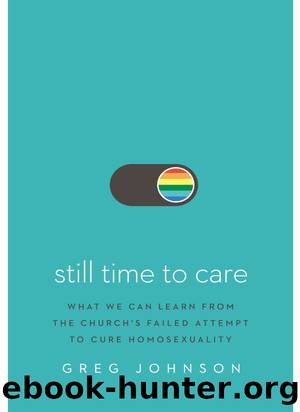Still Time to Care by Greg Johnson

Author:Greg Johnson [Johnson, Greg]
Language: eng
Format: epub
Publisher: Zondervan
Published: 2021-07-02T00:00:00+00:00
Though commentators donât always agree, thereâs good reason to believe Paul is giving voice to his present experience as a believer. In this passage, he speaks of how he delights in Godâs law in his inmost being. That seems to suggest a spiritually regenerated Christianâalive to God. Yet even as an apostle, having penned biblical books under divine inspiration, having walked with Jesus for decades, Paul still has sin living in himâindwelling sin. Evil is right there with him. Temptation doesnât always go away.
This deeply rooted sin is what theologians have variously called concupiscence, the sinful nature and its motions, indwelling sin, or internal corruption.
The Protestant reformer John Calvin explained the relative permanence of indwelling sin in his discussion of Romans 6. âSo long as you live, sin must needs be in your members,â he wrote. It must be. There is no cure. He continued, âAt least let it be deprived of mastery.â1 The 1647 Westminster Confession of Faith expressed this reality succinctly: âThis corruption of nature, during this life, doth remain in those that are regenerated.â2 The 1689 Baptist Confession of Faith quoted Westminster verbatim at this point. The Baptists saw nothing to improve upon.
There is no cure for corrupted nature in this life. We remain inescapably children of Adam. There is only a charge to fight our corrupted natureâs temptations to sin.
So distorted is our fallen human nature, and so deeply rooted our sin, that a believer can never really be rid of it in this life. The seventeenth-century Anglican bishop William Beveridge lamented, âI cannot pray but I sin. I cannot hear or preach a sermon but I sin. I cannot give an alms or receive the sacrament but I sin. Nay, I cannot so much as confess my sins, but my very confessions are still aggravations of them. My repentance needs to be repented of, my tears need washing, and the very washing of my tears needs still to be washed over again with the blood of my Redeemer.â3
Seventeenth-century scholar and divine Samuel Bolton wrote, âIt was said of Carthage that Rome was more troubled with it when half destroyed than when whole. So a godly man may be more troubled with sin when it is conquered than when it reigned. Sin will still work.â4 Princeton Seminaryâs legendary Charles Hodge called it a âuniversal and incurable corruption of our natureâ which reveals redemption to be no small matter, but the work of God.5
Incurable.
Download
This site does not store any files on its server. We only index and link to content provided by other sites. Please contact the content providers to delete copyright contents if any and email us, we'll remove relevant links or contents immediately.
Zero to IPO: Over $1 Trillion of Actionable Advice from the World's Most Successful Entrepreneurs by Frederic Kerrest(4542)
Machine Learning at Scale with H2O by Gregory Keys | David Whiting(4307)
Never by Ken Follett(3945)
Harry Potter and the Goblet Of Fire by J.K. Rowling(3851)
Ogilvy on Advertising by David Ogilvy(3616)
Shadow of Night by Deborah Harkness(3362)
The Man Who Died Twice by Richard Osman(3077)
Book of Life by Deborah Harkness(2937)
The Tipping Point by Malcolm Gladwell(2918)
Will by Will Smith(2917)
0041152001443424520 .pdf by Unknown(2845)
Purple Hibiscus by Chimamanda Ngozi Adichie(2835)
My Brilliant Friend by Elena Ferrante(2826)
How Proust Can Change Your Life by Alain De Botton(2811)
How to Pay Zero Taxes, 2018 by Jeff A. Schnepper(2652)
Hooked: A Dark, Contemporary Romance (Never After Series) by Emily McIntire(2552)
Rationality by Steven Pinker(2358)
Can't Hurt Me: Master Your Mind and Defy the Odds - Clean Edition by David Goggins(2330)
Borders by unknow(2310)
